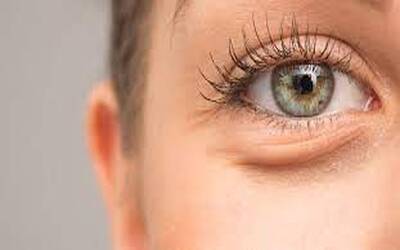Wake Up Refreshed: 5 DIY Remedies to Instantly De-Puff Eyes
How Does Puffy Eyes Happen?
Puffy eyes can be caused by various factors, including:
Lack of sleep
When you don't get enough shut-eye, fluid retention can occur around the eyes, leading to puffiness.
Allergies
Allergies can trigger inflammation, which can manifest as puffy eyes.
Dietary choices
Excess salt intake can contribute to fluid retention, including around the eyes.
Crying
Tears contain salt, and the act of crying can also cause temporary puffiness.
Stress
Stress hormones can cause blood vessels to dilate, leading to puffiness.
Natural Remedies vs. Conventional Treatments
While there are many over-the-counter and prescription treatments available for puffy eyes, natural remedies offer a gentle, often more affordable, and readily available option. However, it's important to remember that natural remedies may not work for everyone, and their effectiveness can vary depending on the cause of the puffiness.
Advantages of Natural Remedies
1. Natural ingredients: They are often free of harsh chemicals and preservatives, making them suitable for sensitive skin.
2. Cost-effective: Many ingredients are readily available and affordable, or you might already have them at home.
3. Safe: Most natural remedies are generally safe for use around the eyes when used properly.
Disadvantages of Natural Remedies:
1. May not work for everyone: Individual results may vary depending on the severity of puffiness and the underlying cause.
2. Requires patience: Some remedies may take longer to show results than conventional treatments.
3. Unsuitable for all causes: Not all DIY remedies are effective for all causes of puffiness. For example, if allergies are the culprit, dietary changes or antihistamines may be more helpful.
5 DIY Remedies for De-Puffing Eyes:
1. Cucumber Slices
The classic remedy for a reason! Cucumbers are naturally cooling and contain astringent properties that can help reduce inflammation and tighten skin.
Benefits:
1. Cooling and refreshing
2. Mild astringent effect
3. Readily available
How to use: Chill cucumber slices in the refrigerator for 15-20 minutes. Place them on your closed eyelids for 10-15 minutes.
2. Tea Bags
Green tea and black tea contain caffeine, which can help constrict blood vessels and reduce puffiness. Their tannins also have anti-inflammatory properties.
Benefits:
1. Anti-inflammatory properties
2. Gentle on the skin
3. Cooling effect
How to use: Steep tea bags in hot water for 5 minutes. Let them cool slightly, then place them on your closed eyelids for 10-15 minutes.
3. Cold Spoons
This simple hack utilizes the power of cold temperature to constrict blood vessels and reduce puffiness.
Benefits:
1. Quick and easy
2. No additional ingredients needed
3. Cooling effect
How to use: Chill two spoons in the refrigerator for 15-20 minutes. Gently press them onto your closed eyelids for a few minutes.
4. Aloe Vera Gel
This soothing gel has anti-inflammatory and hydrating properties that can help reduce puffiness and calm irritated skin.
Benefits:
1. Anti-inflammatory and soothing
2. Hydrating and moisturizing
3. Gentle on the skin
How to use: Apply chilled aloe vera gel directly to your under-eye area and leave on for 10-15 minutes. Rinse with cool water.
5. Potato Slices
Similar to cucumbers, potatoes have a cooling and astringent effect that can help reduce puffiness.
Benefits:
1. Natural anti-inflammatory properties
2. Cooling effect
3. Readily available
How to use: Chill potato slices in the refrigerator for 15-20 minutes. Place them on your closed eyelids for 10-15 minutes.
Bonus Tip: Elevate your head with an extra pillow while sleeping to help prevent fluid buildup around the eyes.
Common Mistakes to Avoid
1. Using harsh products: Avoid using harsh soaps, scrubs, or astringents around your eyes, as this can irritate the delicate skin.
2. Rubbing your eyes: Rubbing can worsen puffiness and damage the delicate skin.
3. Leaving remedies on too long: Some remedies, like tea bags, can dry out the skin if left on for too long.
4. Not addressing the underlying cause: If your puffy eyes are persistent, consider consulting a doctor to rule out any underlying medical conditions.
Conclusion
While DIY remedies offer a convenient and natural approach to managing puffy eyes, it's important to remember they may not be a cure-all for everyone. If your puffiness is persistent, severe, or accompanied by other symptoms, consulting a healthcare professional is always the best course of action. They can help identify the underlying cause and recommend more targeted treatment options.
Frequently Asked Questions (FAQ)
Q: How often can I use these remedies?
A: It's best to use these remedies no more than 2-3 times.
Q: Are these remedies safe for all skin types?
A: While generally safe, it's always recommended to do a patch test on a small area of skin before applying any remedy to your face, especially if you have sensitive skin. If you experience any irritation, discontinue use immediately.
Q: Will these remedies permanently cure my puffy eyes?
A: Unfortunately, no. Puffiness can be caused by various factors, some of which may require lifestyle changes or medical attention. These remedies offer temporary relief and can help address mild puffiness, but they might not be a long-term solution for everyone.
Q: Can I combine these remedies?
A: It's best to try one remedy at a time to see what works best for you. Combining them might increase the risk of irritation or not be as effective as using them individually.
Q: What if these remedies don't work for me?
A: If your puffiness persists or worsens, consult a dermatologist or healthcare professional. They can help identify the underlying cause and recommend appropriate treatment options.
Disclaimer: This information is for educational purposes only and should not be interpreted as medical advice. Always consult with a healthcare professional before trying any new treatment, especially if you have any underlying health conditions.
